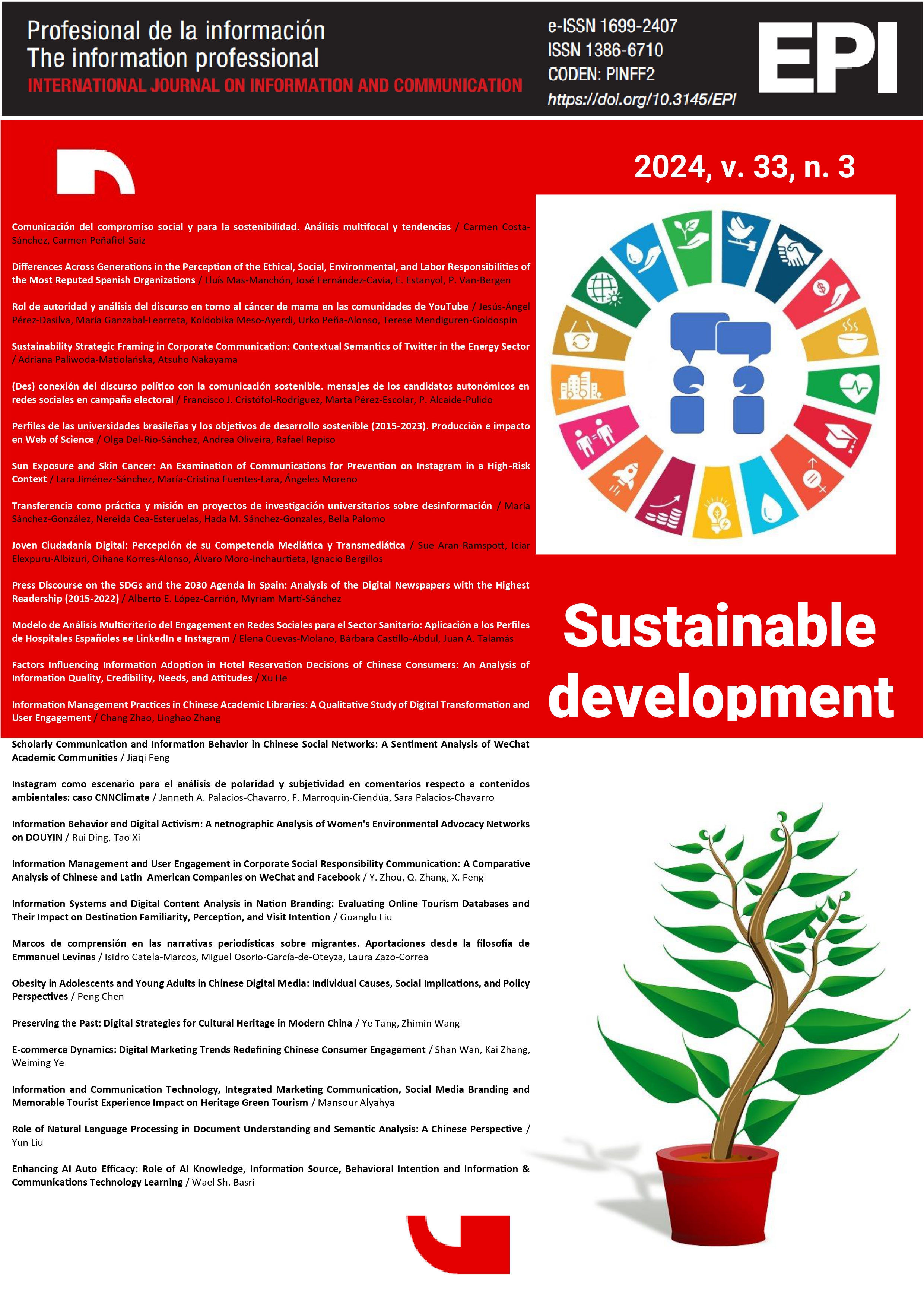Scholarly Communication and Information Behavior in Chinese Social Networks: A Sentiment Analysis of WeChat Academic Communities
DOI:
https://doi.org/10.3145/epi.2024.0314Palabras clave:
Scholarly Communication, Chinese Social Networks, Support Vector Machine (SVM), Sentiment Analysis, WeChat.Resumen
WeChat has penetrated into academic communication circles; however, there is still a significant gap in understanding
the way sentiment and information behaviors shape scholarly discourse on this platform. The present research aimed
to explore the scholarly communication and information behavior in the Chinese social networks. For this purpose, a
sentiment analysis of WeChat academic communities was performed. This study adopted a comprehensive
methodology that involved collection of 800 WeChat articles on the basis of engagement metrics, followed by the data
pre-processing. It involved cleaning, Chinese words segmentation using Jieba library and TF-IDF vectorization for text
analysis. Results of SVM model demonstrated robust performance in sentiment analysis with an overall accuracy of
89% and consistent precision and recall rates across the sentiment categories. Comparison with existing studies also
highlighted effectiveness of this model in classifying sentiments on WeChat. Utilization of SVM in sentiment analysis
advances the theoretical understanding of text classification techniques in social media environments. The findings also
provide valuable insights for researchers and practitioners so that they can leverage SVM for effective classification of
SVM. Limitations and future research indications have also been explained in the study
Descargas
Descargas
Publicado
Cómo citar
Número
Sección
Licencia
Derechos de autor 2024 Profesional de la información

Esta obra está bajo una licencia internacional Creative Commons Atribución 4.0.
Condiciones de difusión de los artículos una vez son publicados
Los autores pueden publicitar libremente sus artículos en webs, redes sociales y repositorios
Deberán respetarse sin embargo, las siguientes condiciones:
- Solo deberá hacerse pública la versión editorial. Rogamos que no se publiquen preprints, postprints o pruebas de imprenta.
- Junto con esa copia ha de incluirse una mención específica de la publicación en la que ha aparecido el texto, añadiendo además un enlace clicable a la URL: http://revista.profesionaldelainformacion.com
La revista Profesional de la información ofrece los artículos en acceso abierto con una licencia Creative Commons BY.




